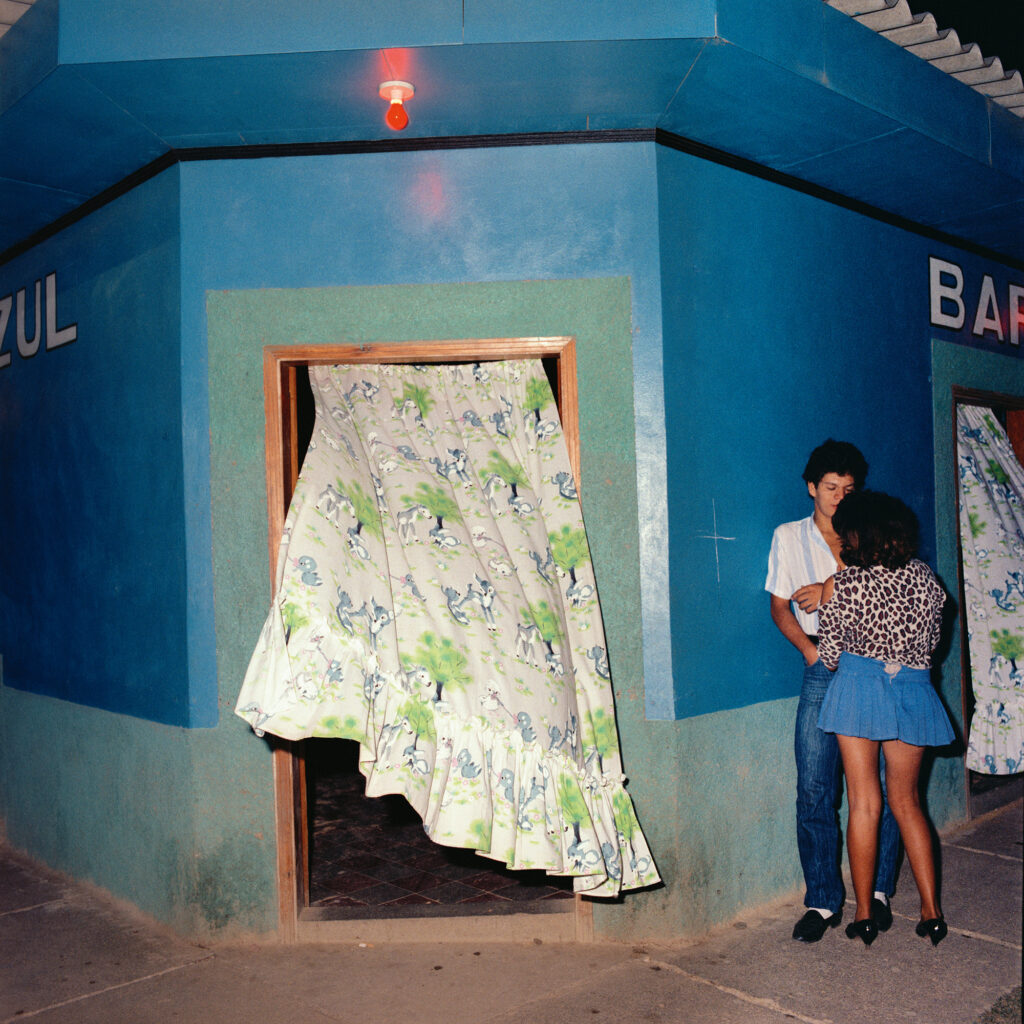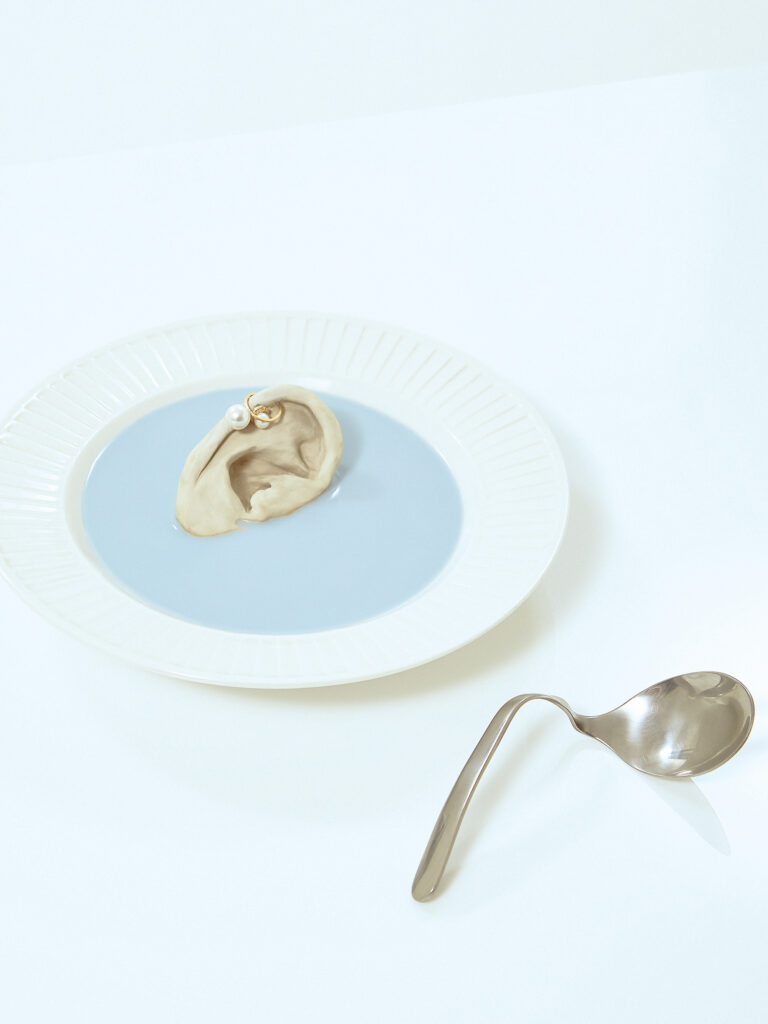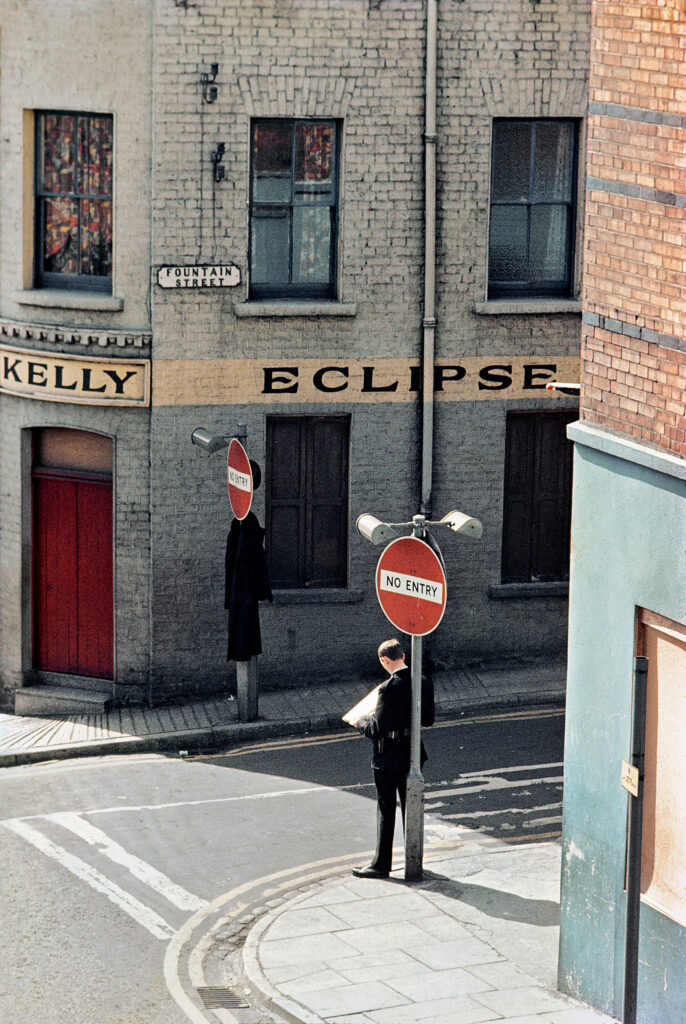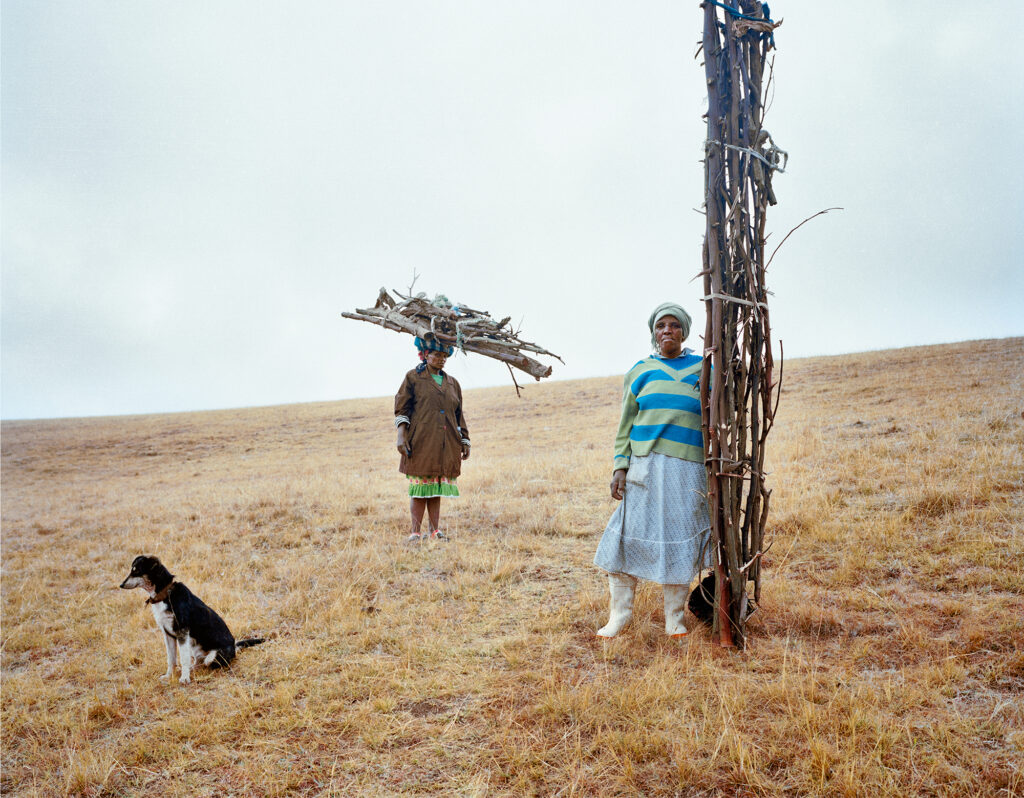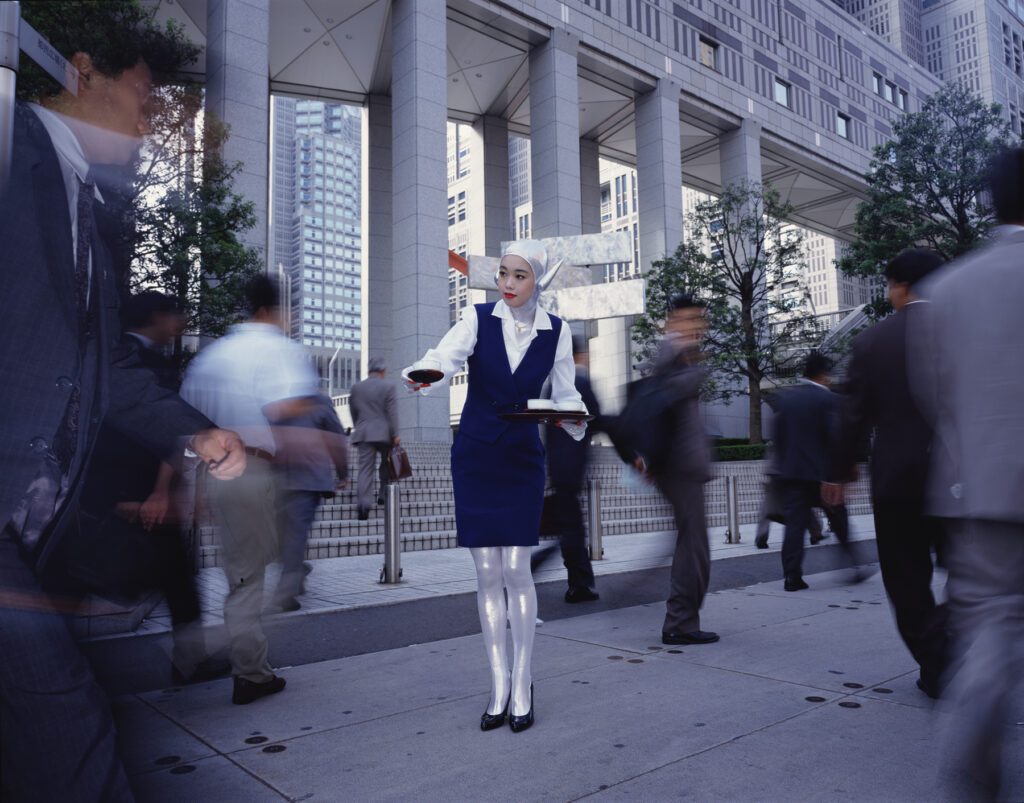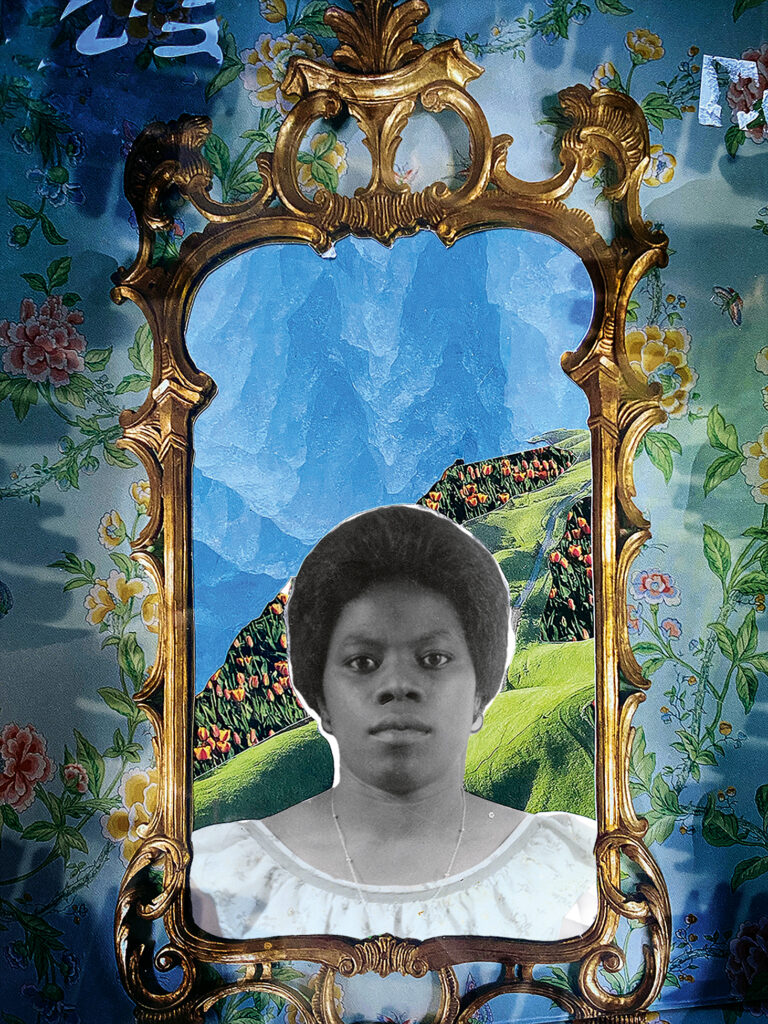Portfolios
The Women Behind Accra’s Storied Makola Market
You can find just about anything at this vital market in Ghana. Misper Apawu’s new portraits highlight the traders who run the show.

It is often said that if you are unable to locate a particular item in Makola Market, or get assistance from a trader who knows where to find it, then the product does not exist—or it’s not available in Ghana. But only when you go to Makola does this image of a one-stop shop become apparent. Though chaotic at first glance, the market is clearly structured, so you may wind through hawkers and petty traders to lanes of vendors selling imported fabrics and wax prints, or wigs, hair creams, relaxers, and conditioners—sometimes all at the same table. There are stalls, kiosks, and tabletop shops in the market and open-air areas. You may stumble on wholesalers of beauty products, candy, combs, and spare parts, among other goods that reflect the ingenuity of the traders and a complex system of wholesale, retail, and distribution services.
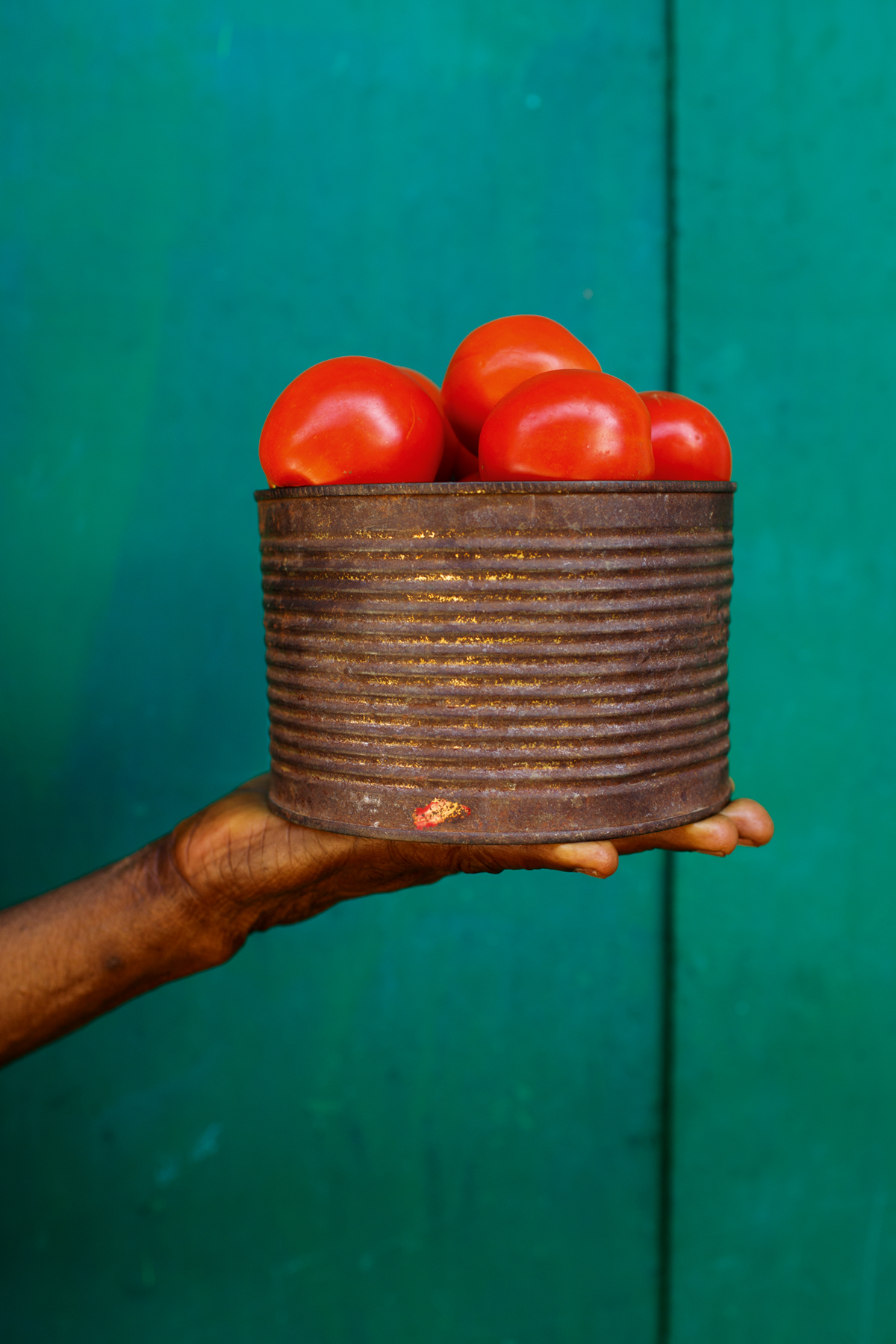
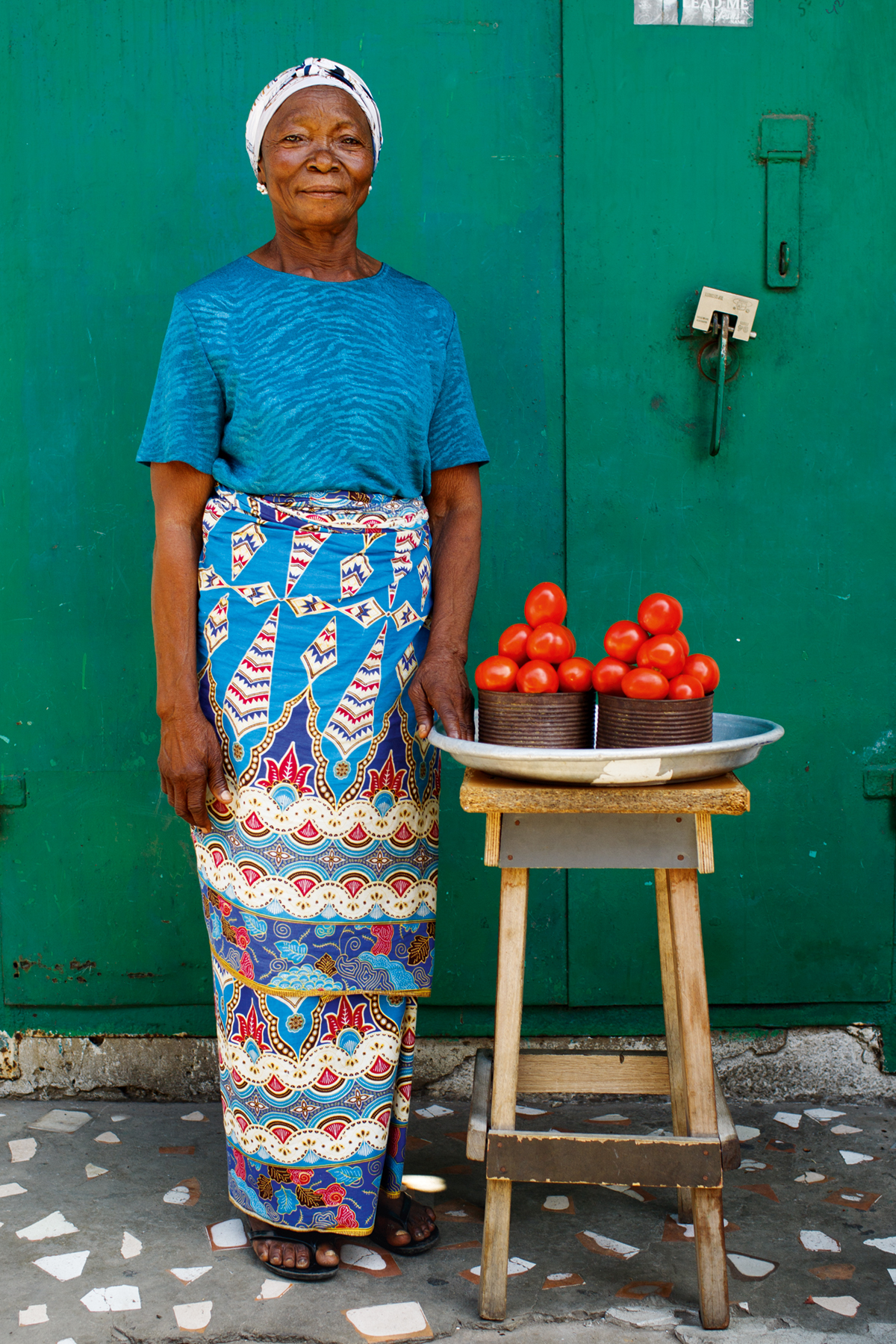
Makola is located in Accra’s central business district, and since being built in 1924 it has been dominated by women. Historically, women from Accra’s indigenous Ga ethnic group, who had been trading since the sixteenth century, made Makola a thriving market. Makola is now a much more diverse place, with women from all over Ghana participating in the trading business. Many, including Winnifred Aku Tetteh, a smoked-fish seller, have been working in Makola for more than thirty years. They supply Accra’s five million residents with fresh produce, household supplies, clothing, and everything else for their daily needs. The women’s success depends on their ability to read cultural shifts and use of a range of marketing techniques while keeping up with global trends. For example, wax print sellers, such as Veronica Agbozo, who source their fabrics and lace from the United States, China, Nigeria, and Togo, among other places, rely on their storytelling skills—beginning with the naming of new patterns to reflect Ghanaian sociocultural realities—to help sell their products.
Aperture Magazine Subscription
0.00
Last spring, the Accra-based photographer Misper Apawu made repeated trips to Makola to produce a series of portraits of women traders. Apawu, whose work has often focused on the lives of women in Ghana, claims that her first encounter with photography occurred in a market in Dambai, a town in the Oti region of Ghana, an experience that changed her life. In her childhood, when she used to sell iced water in the market, she watched the women’s faces light up whenever tourists pointed their cameras at them. And when tourists showed the women their pictures, they would beam with delight. The joy Apawu witnessed between the women and the camera inspired her to take up photography as a young adult.
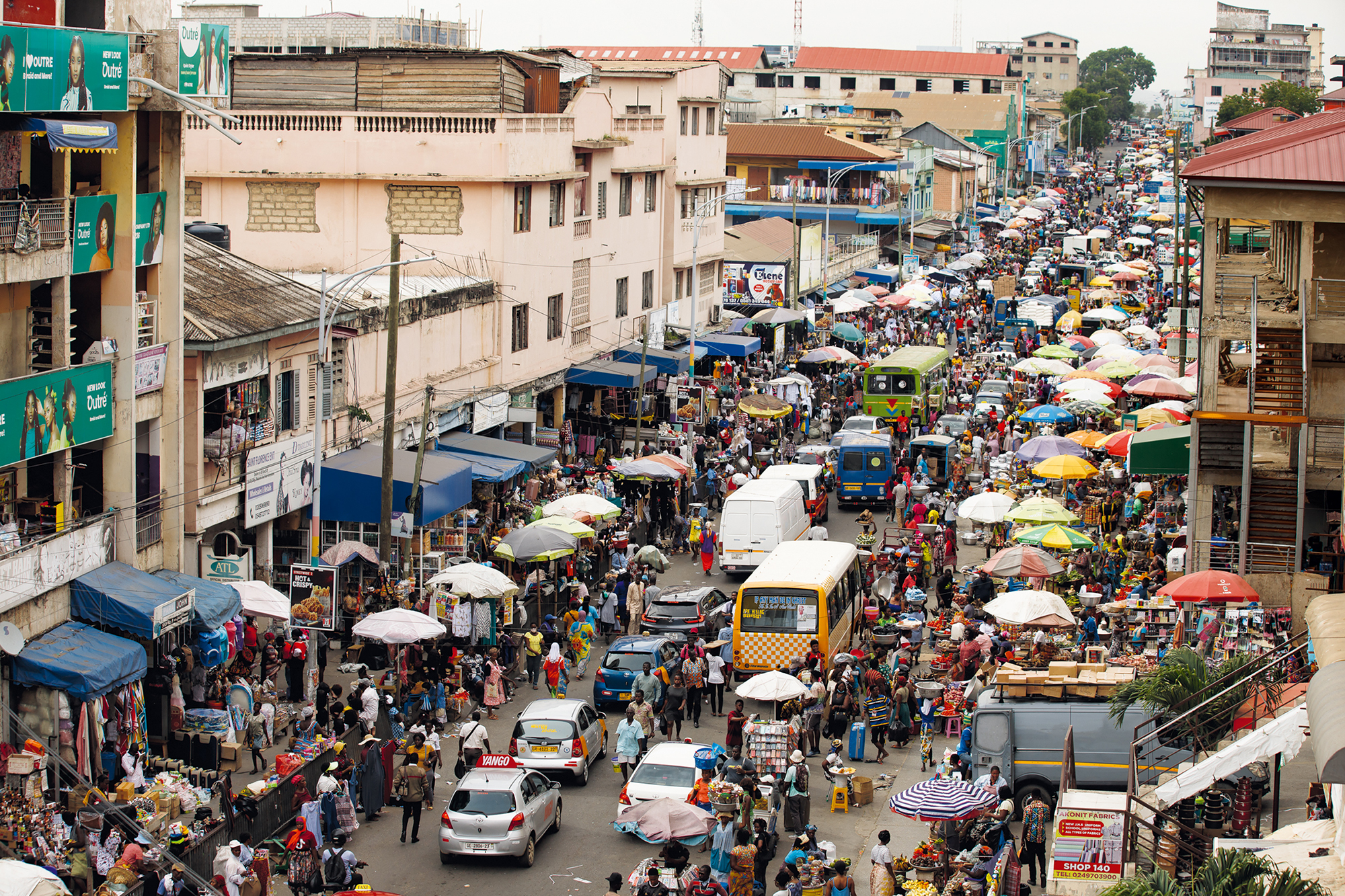
Misper Apawu, Makola Market, 2023
Women in Ghana’s markets have built and expanded their businesses on centuries-old systems, including apprenticeships. Alberta Koshie Lamptey, a bead seller, and Lydia Owusu, an avocado seller, learned the trade from their mothers. Makola has changed since they took over their stalls more than a decade ago, with an increased number of traders, higher costs of goods, and the lack of a credit system. Like women in markets throughout Ghana, they are grateful for their jobs, financial independence, and the ability to provide for their families. For women such as Elizabeth Darkwa Mensah, Makola has given her not only financial freedom but the opportunity to lead. As president of a wax print sellers’ association in Makola, she is part of a team of market queens who manage market facilities, enforce rules, provide financial support, respond to emergencies, and create networking opportunities. Makola, like other markets, is underfunded and underresourced, but its leaders ensure that it runs smoothly.
As influential and visible players in the economy, market women bear the brunt of rising prices, which are often caused by inflation and poor fiscal management. During the 1979 economic crisis, both the government and Ghana’s citizens blamed Makola’s sellers for rising prices and shortages of essential goods, and for that the market was demolished by soldiers. Elizabeth Darkwa Mensah still remembers the trauma and the challenges that followed when trading resumed in 1987, and she is thankful that Makola has transitioned into a thriving commercial hub in Accra.
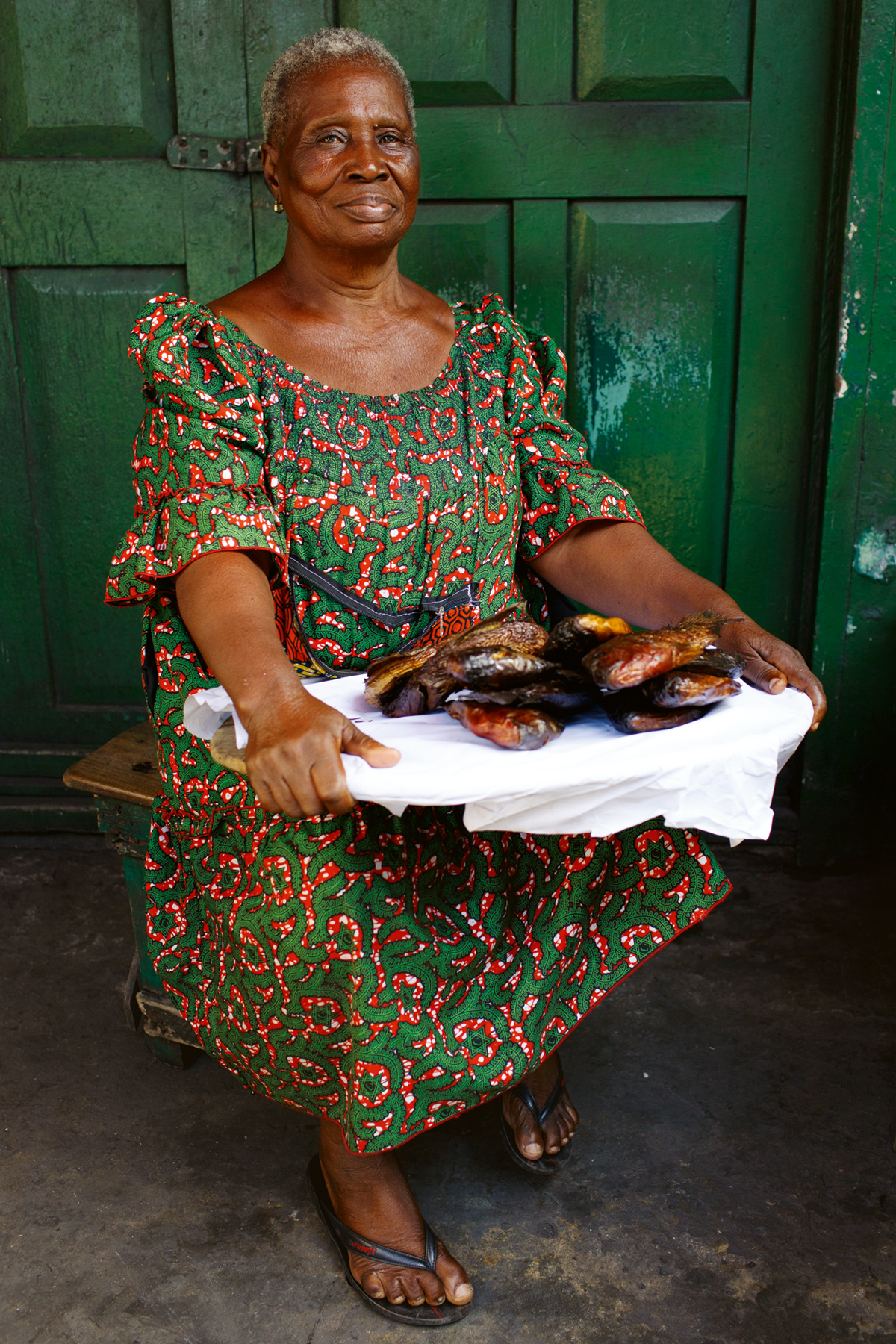
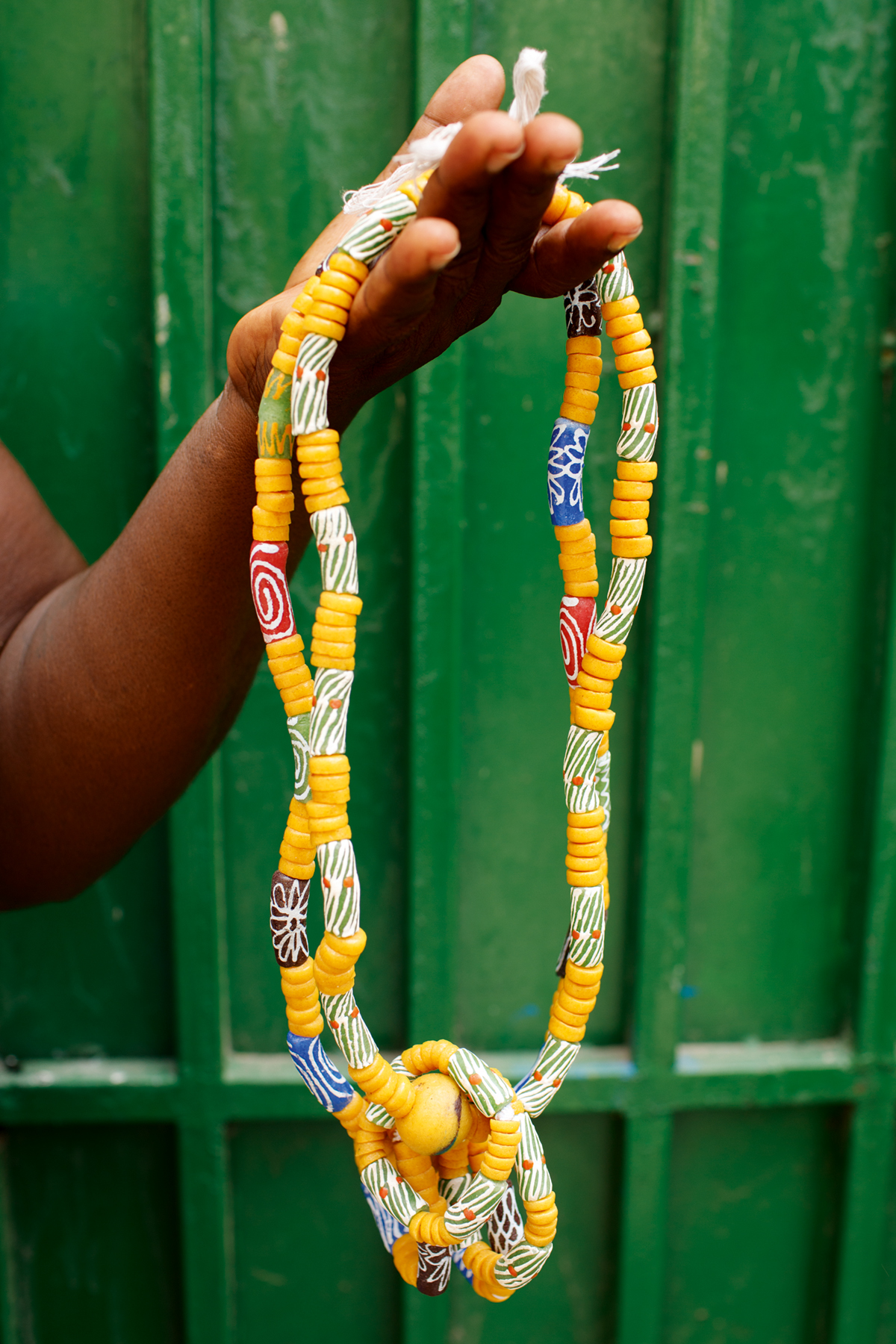
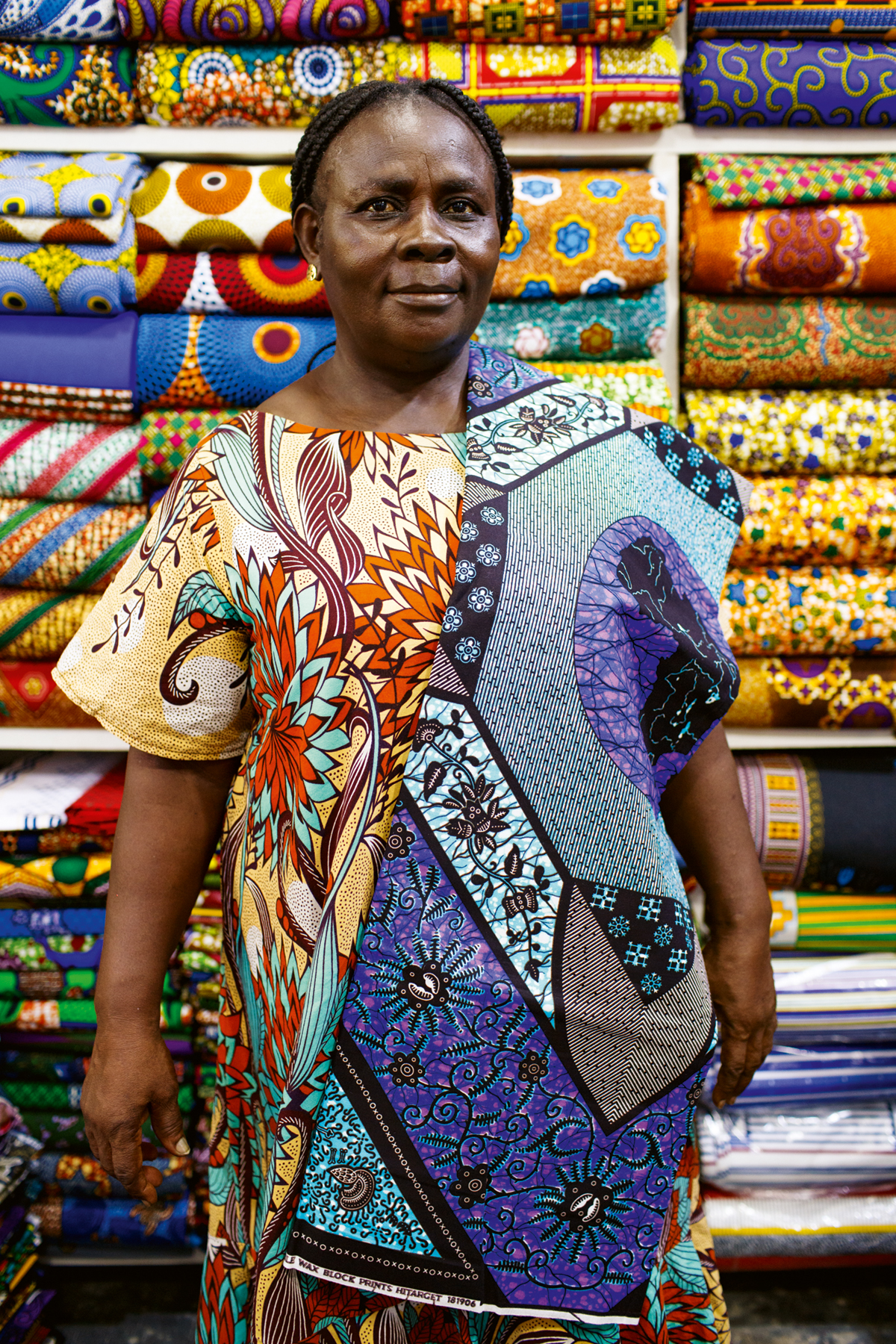
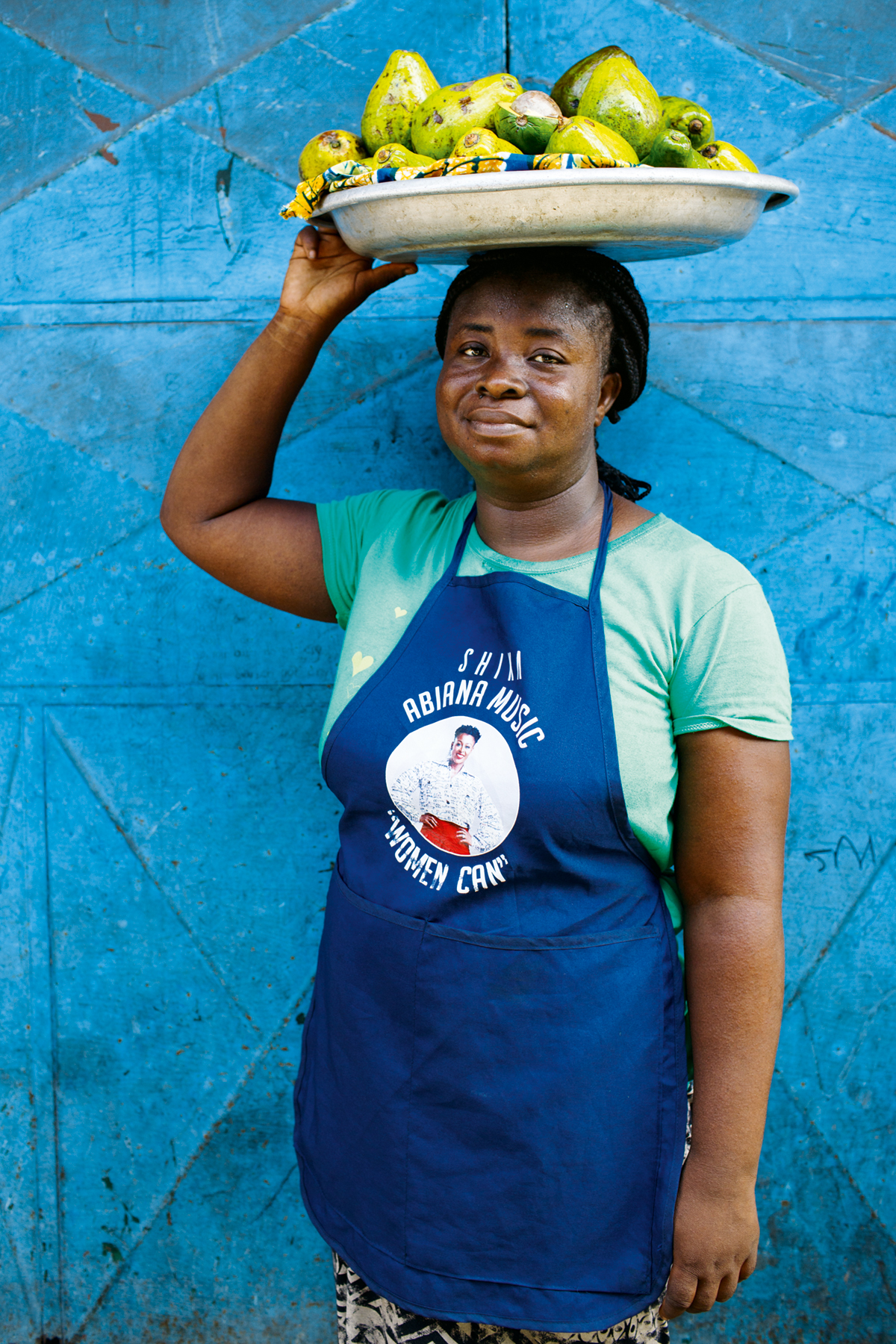
This article originally appeared in Aperture, issue 252, “Accra.”




